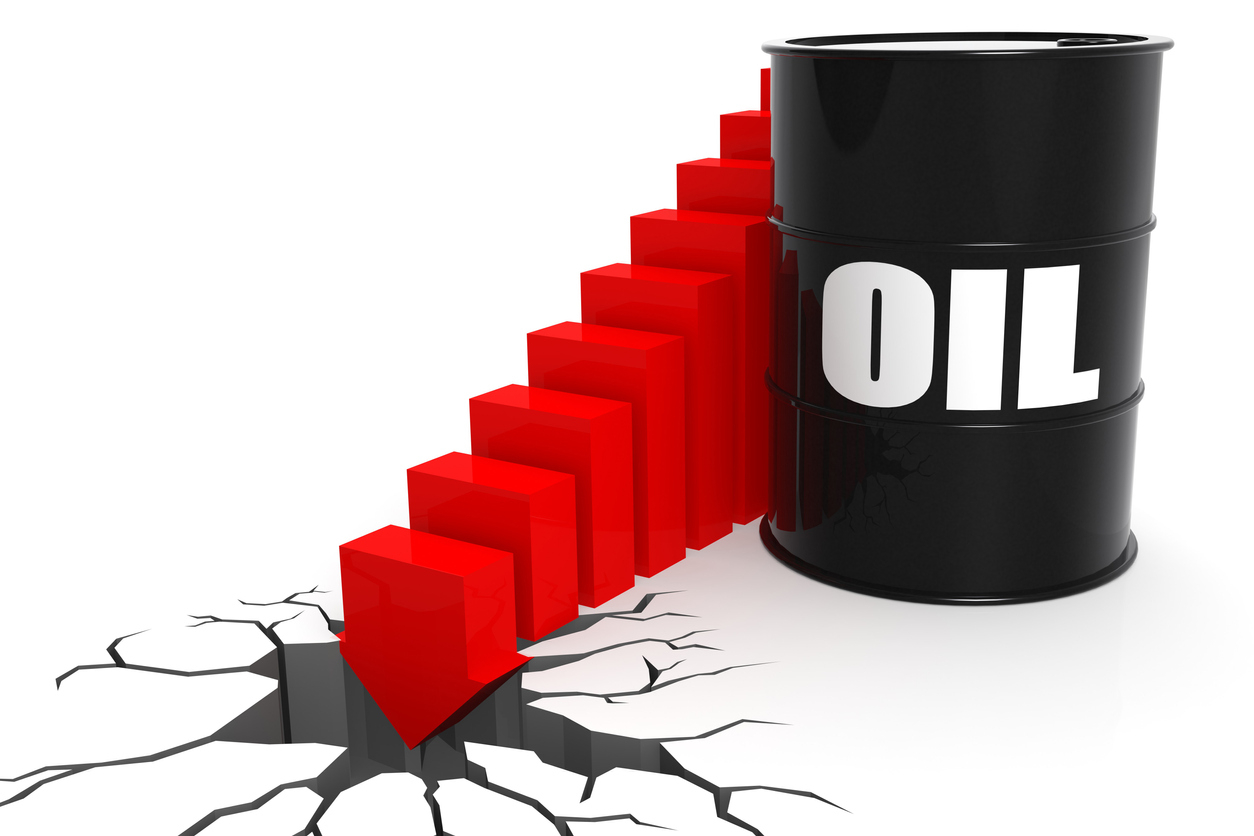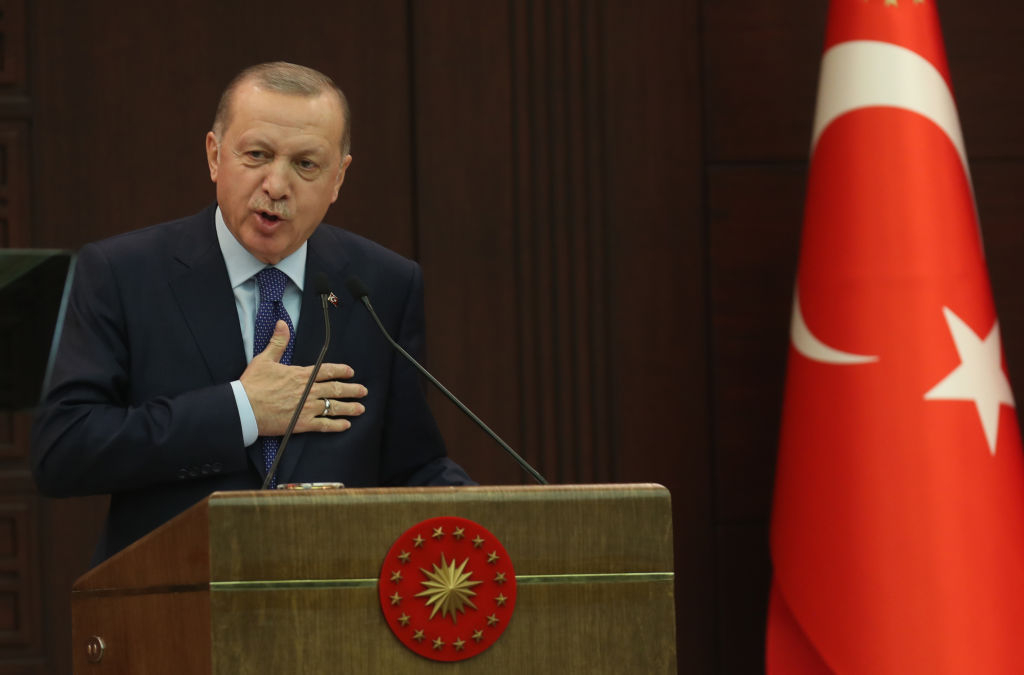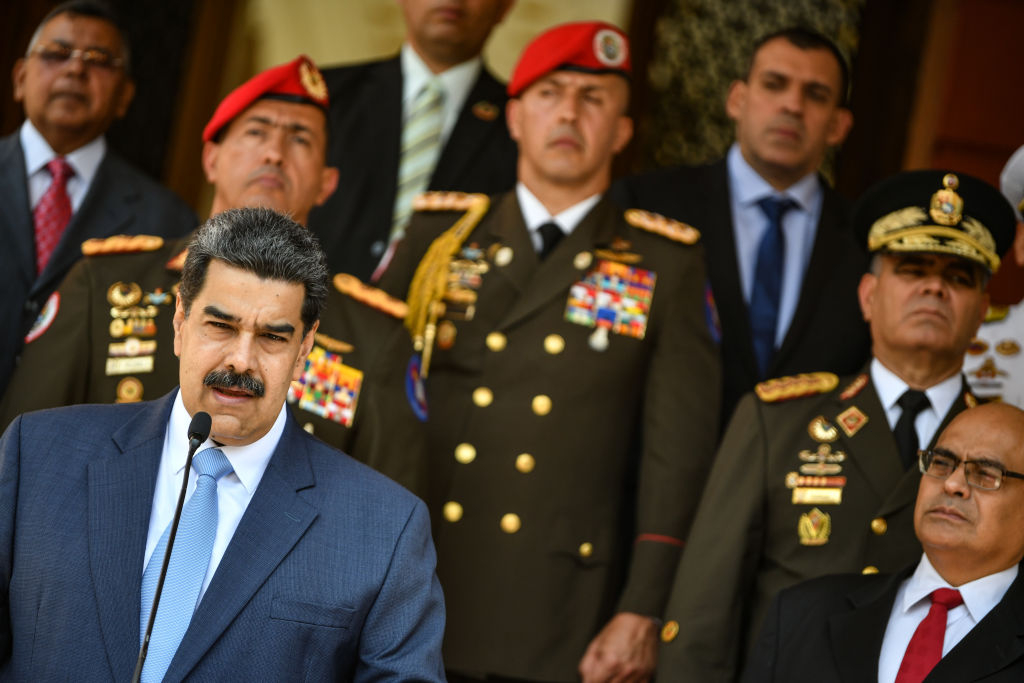In this mailing:
- Con Coughlin: Iran's Ayatollahs Will Struggle to Survive the Oil Slump
- Burak Bekdil: Turkey: Erdoğan Is Getting Coronavirus Dancing to His Tune
- Lawrence A. Franklin: Venezuela: Maduro's Cuban Army
by Con Coughlin • April 23, 2020 at 5:00 am
Iranian President Hassan Rouhani has tried to put a brave face on the latest setback to hit the regime, claiming that Iran is unlikely to suffer as much as other countries from the oil price drop because it is less reliant than others on crude exports.
If that were truly the case, then Tehran would not be asking the IMF for a bailout, and Mr Rouhani, together with Javad Zarif, Iran's Foreign Minister, would not be begging Washington to remove sanctions.
The truth of the matter is, for all the regime's attempts to claim it has everything under control, that the country is teetering on the brink of collapse, and the ayatollahs are fast running out of options to save themselves.

(Image source: iStock)
At a time when Iran's Islamic regime is already facing unprecedented pressure over its handling of the coronavirus outbreak, as well as its disastrous handling of the economy, the global slump in oil prices could well prove to be the final straw for the ayatollahs.
Even before this week's dramatic collapse in global oil prices, which saw the key gauge of U.S. crude prices, the West Texas Intermediate benchmark, tumble into negative territory for the first time in history, the mullahs were already under intense pressure over their catastrophic running of the country during their four decades in power.
A combination of the regime's clumsy attempts to cover up the true extent of the coronavirus outbreak in Iran, combined with the disastrous impact the US sanctions are having on the Iranian economy, have resulted in the regime facing the most sustained period of domestic dissatisfaction since the 1979 revolution.
by Burak Bekdil • April 23, 2020 at 4:30 am
One of the laws Turkey's rubber-stamp parliament passed before the recess allowed the release of tens of thousands of common criminals to ease overcrowding in jails and protect inmates from the coronavirus pandemic. The amnesty, however, excluded hundreds of political prisoners including journalists, writers, academics and social media users critical of Erdoğan's authoritarian regime
In 2020, the collective fear is the coronavirus pandemic. And just as in the previous instances based on fear, it seems to be working in Erdoğan's advantage.
"The people tend to unite behind strong leaders in times of national crisis like war, terror, security threats, disasters or pandemic." — Özer Sencar, president of Metropoll, non-partisan pollster, Hurriyet, April 16, 2020.

In 2020, the collective fear of Turks is the coronavirus pandemic. And just as in the previous instances based on fear, it seems to be working to the advantage of President Recep Tayyip Erdoğan. Pictured: Erdoğan speaks at a press conference addressing the coronavirus crisis in Ankara, Turkey on March 18, 2020. (Photo by Adem Altan/AFP via Getty Images)
When a group of military officers attempted a putsch to overthrow Turkish President Recep Tayyip Erdoğan in July 2016, the Islamist strongman replied with two reflexes: survival, and a vigorous political campaign to make political gains from the failed coup. He succeeded in both.
Most Turks, including Erdoğan's opponents, weary of decades of military coups, united behind him to resist the putsch that ended up killing 250 people and wounded more than 2,000. Erdoğan's approval rating rose sharply from 45% before the failed coup to 67.6% in its aftermath. For many observers, that was not a surprise. Only a year earlier, Erdoğan had gambled over the Turks' collective security concerns and won.
In the general elections on June 7, 2015, Erdoğan's Justice and Development Party (AKP) lost its parliamentary majority for the first time since it came to power in November 2002.
by Lawrence A. Franklin • April 23, 2020 at 4:00 am
The U.S. Department of Justice accuses Maduro of having served as the chief of a narcotics organization called "the Cartel of the Suns." Maduro's drug cartel is further alleged to have helped arm an extremist faction of the Colombia-based Marxist terrorist group, the Revolutionary Armed Forces of Colombia (FARC), in its decades-long campaign to overthrow Colombia's government. Maduro's cartel has also allegedly worked with FARC to flood the U.S. with cocaine.
The intensity of Maduro's attack against Trump may indicate a sense of panic at the possibility that the U.S. drug indictment might be setting the stage for some kind of military action against the socialist regime that will oust him from power.
Short of a U.S.-supported invasion by an international coalition, including free Latin American states, perhaps sometime after the U.S. election, Maduro will continue to wreck the formerly oil- rich country as its people continue to live in misery.

The U.S. Department of Justice accuses Venezuelan dictator Nicolás Maduro of having served as the chief of a narcotics organization called "the Cartel of the Suns." Maduro's drug cartel is further alleged to have helped arm an extremist faction of the Colombia-based Marxist terrorist group, the Revolutionary Armed Forces of Colombia (FARC). Pictured: Maduro speaks during a press conference in Caracas, Venezuela on March 12, 2020. (Photo by Carolina Cabral/Getty Images)
More than fifty countries in the Euro-Atlantic and Hispanic Free World consider the Venezuelan regime led by dictator Nicolás Maduro to be illegitimate. This view also seems to be shared by millions of Venezuelans, more than four million of whom have fled the country's political oppression and economic depression.
The main reason for the charge of illegitimacy stems from the view that Maduro's victory for a second six-year term as president in Venezuela's 2018 national elections was fraudulent. Opposition protests have failed to dislodge the socialist-led regime, which has so far been sustained by Chinese loans, Russian weapons and Cuban troops. The Venezuelan people, disenfranchised and disarmed, have, in addition, been bullied into submission by pro-regime neighborhood revolutionary leftist gangs called "colectivos."
|
|
|
No comments:
Post a Comment